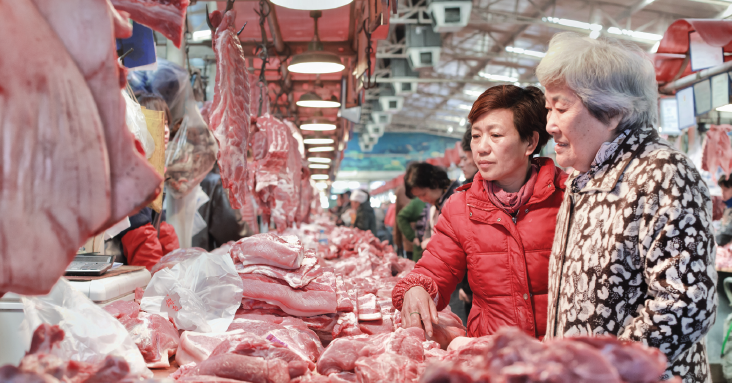Posted By: Pushpanathan Sundram
As ASEAN economies continue to manage pandemic-related food security challenges, regional efforts are also focused on policies and innovations to build future food system resilience and sustainability – and all parts of the private sector have a critical role to play.
COVID-19 has increased food insecurity across the ASEAN region. Reduced mobility has posed barriers to food access, while lockdowns have reduced access to farm labour, lowering agricultural employment and output. Farmworkers and farming households have been the most heavily impacted and poverty levels have increased across the region, compounding the pre-existing double burden of obesity and malnutrition.
In addition to the immediate pandemic impacts, Southeast Asia faces multiple emerging threats from climate change, declining natural resources and the frequent occurrence of transboundary animal diseases. While the food and agriculture sector, including livestock, has led growth in countries such as Vietnam, parts of the food value chain have also been disrupted by natural disasters, increasing overall regional food insecurity.
Proposed policy solutions – such as ensuring the movement of essential products, promoting responsible investment in food and agriculture and fostering new employment streams – will help to reduce poverty, and to improve food and nutrition security.
The private sector also has a critical role to play in transforming regional food systems – through investments in innovation, production practice improvements, supply chain efficiencies and marketing strategies that can shift consumer purchasing behaviour. The private sector is a very diverse group - from multinational companies to small family farms, fishers and individuals. The private sector’s capacity to develop and adopt new technology is equally diverse, with huge potential to reduce food waste, increase yields, improve animal health and productivity, reduce climate impacts and meet consumer health needs.
One of the biggest challenges for the region’s food security over the next few years is to ensure trade remains open, so that farmers and consumers can access essential products and inputs. Another is ensuring access to climate smart innovation. One example of how ASEAN and partner countries are addressing these challenges is the Agriculture Innovation Mission for Climate (AIM for Climate), pioneered by the US and the UAE, and supported by Singapore, Japan, Vietnam, Australia, Bangladesh, the Philippines and Korea (as well as more than a dozen other countries from around the world). It was launched at COP26, endorsing global innovation in agriculture and food systems in support of climate action. The collaboration will focus on new ways to sustainably increase agricultural productivity, improve livelihoods, conserve nature and biodiversity, and address climate change.
*adapted from on an interview published by unravel.ink on 17th August 2021
Pushpanathan Sundram
Pushpanathan Sundram has more than three decades of experience working in the highest levels of government, international organisations and the private sector. He was the Deputy Secretary General of ASEAN (Deputy Minister) for the ASEAN Economic Community (AEC) from 2009 to 2011.

